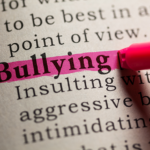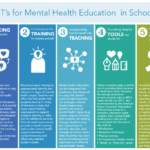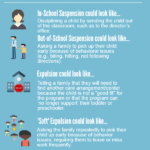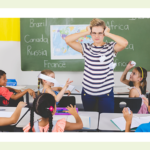Externalizing behavior problems primarily refer to issues that involve external actions, such as acting out, aggression, and disruptive behaviors.
Supporting Students with Behavioral and Emotional Needs: A Conversation with Carl Sumi
In the latest episode of The SRI Homeroom podcast, Senior Principal Education Researcher Carl Sumi joined host Kori Hamilton Biagas to discuss strategies, interventions, and recommendations for educators, schools, and researchers hoping to meet that need head-on.
Continue reading →BEST in CLASS: What Coaches and Teachers Say About It. Part 2: Teacher Perspectives
Practice-based coaching (PBC) promotes a strong collaborative partnership between teachers and coaches to facilitate the use of effective instructional practices. The PBC process includes skills instruction on BEST in CLASS practices, shared goals and action planning, implementation support, classroom observation, and reflection and feedback.
Continue reading →BEST in CLASS: What Coaches and Teachers Say About It. Part 1: Coach Perspectives
BEST in CLASS (Behavioral, Emotional, and Social Training: Competent Learners Achieving School Success) is a tier 2 (targeted) evidence-based intervention for young children with persistent and intensive challenging behaviors.
Continue reading →Which Kindergarteners are at Risk of Being Bullied and/or Becoming Bullies, and What Can Educators and Parents Do About It?
Bullying occurs when children experience unwanted and aggressive behavior from more powerful peers repeatedly over time.
Continue reading →How early childhood education providers can use COVID-19 relief funds to establish lasting mental health supports for staff and children
Did you know? The recent influx of federal COVID-19 relief funds provides an opportunity to fund early childhood educational mental health supports and services!
State agency leaders and early childhood educators can use infant and early childhood mental health consultation (IECMHC) to meet children’s social and emotional needs during and beyond ...
Continue reading →Overcoming the early childhood suspension & expulsion problem
If preschool is designed to set a foundation of learning for children, expose them to structure, and build social, emotional and behaviors skills, then what is happening to produce these alarming rates?
Continue reading →How can we incorporate mental health education into schools? Consider the 5 T’s.
Mental health is a critical part of students’ overall health and well-being.
Students today face a range of demands that can impact their mental health. From meeting high academic expectations to navigating the world of social media to maintaining relationships with their peers, students often have busy schedules that result in ...
Continue reading →Preventing expulsions in early childhood and supporting all children’s success
In state-funded preschools, children are expelled at 3 times the rate of K-12 students, and private preschool programs expel children at more than 13 times the rate of K-12 students. Our researchers have developed an interactive guide with recommended policies and practices to support early education program leaders in reducing ...
Continue reading →Helping students help themselves
To successfully navigate their school and home lives, students need more than just academic skills. Learning social-emotional skills can benefit all students. Social problem-solving is one social-emotional skill that can help all students in a classroom learn to better manage their emotions and behaviors, cooperate and communicate with peers, and ...
Continue reading →








